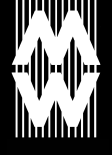
![]()
![]()
![]()
![]()
![]()
![]()
![]()
![]()
Archives & Museum Informatics
2008 Murray Ave.,
Suite D
Pittsburgh, PA
15217 USA
| Search A&MI |
Join our Mailing List.
Privacy.
Published: March 1999.

The Science Learning Network
Ted Myers , Miami Museum of Science, USAAndrea Bandelli , newMetropolis Science and Technology Center, The Netherlands
Session: Tools for Teachers
The Science Learning Network (SLN) is a consortium of leading science museums worldwide, collaborating to provide online resources, experiences, and interaction that support science learning. For the past three years, six museums in the United States have provided schools with telecomputing technology, Web resources, teacher training, and online forums for interacting. Now, the SLN program will expand to include partner museums in the United Kingdom, the Netherlands, Finland, Japan, and Singapore.
The new global SLN partners include the National Museum of Science & Industry (London); newMetropolis Science & Technology Center (Amsterdam); Heureka, The Finnish Science Center (Helsinki); Science Museum, Japan Science Foundation (Tokyo); and Singapore Science Center. This international roster joins the participating U.S. museums: The Franklin Institute Philadelphia), Museum of Science (Boston), Science Museum of Minnesota (St. Paul), Miami Museum of Science, Oregon Museum of Science and Industry (Portland), and The Exploratorium (San Francisco).
The Web continues to become a global phenomenon and to increasingly influence education. The successful efforts of the original SLN project will be expanded into international territory by allowing teachers and students who do not speak English to use the Web science resources that already exist and to create new multicultural, multilanguage resources. For example, The Miami Museum of Science and newMetropolis in Amsterdam have teamed up to translate "The pH Factor", an online resource to help upper elementary and middle school classrooms understand the basics of chemistry. The pH Factor is also being translated into Spanish, Chinese and Japanese.
Representatives from two of the SLN partners, Ted Myers of the Miami Museum of Science and Andrea Bandelli of newMetropolis, will speak on challenges and solutions that arise as museums support schools via the Internet, as well as methods for translating web resources both linguistically and culturally. Mr. Myers is the original webmaster for The pH Factor and Mr. Bandelli is the coordinator of the Dutch translation effort. Mr. Bandelli will also share the process of collaborating with the Oregon Museum of Science and Industry to develop "Everybody Eats," an online resource that investigates cultural differences in diet and lets students and teachers conduct nutritional testing of their own food.